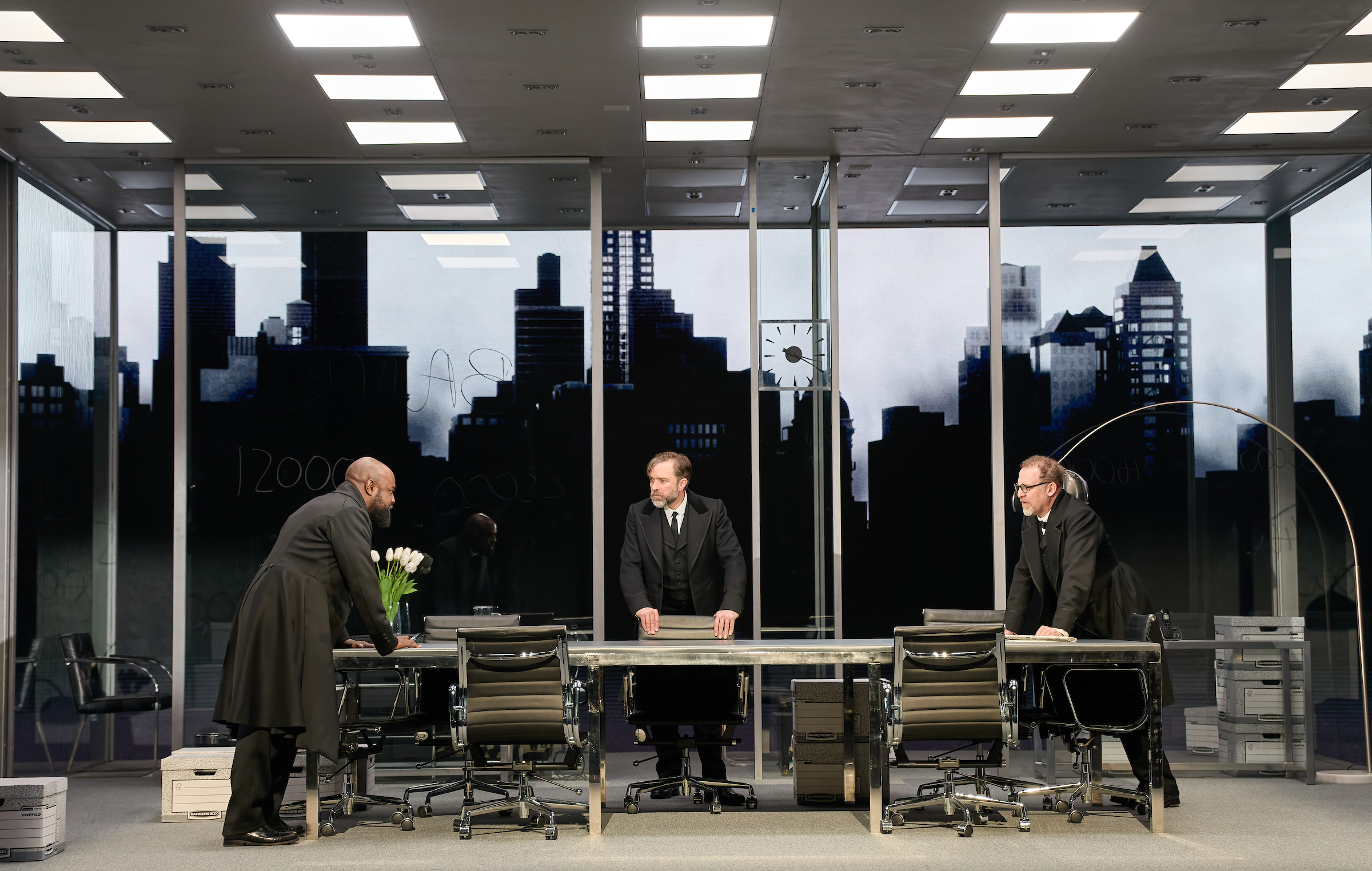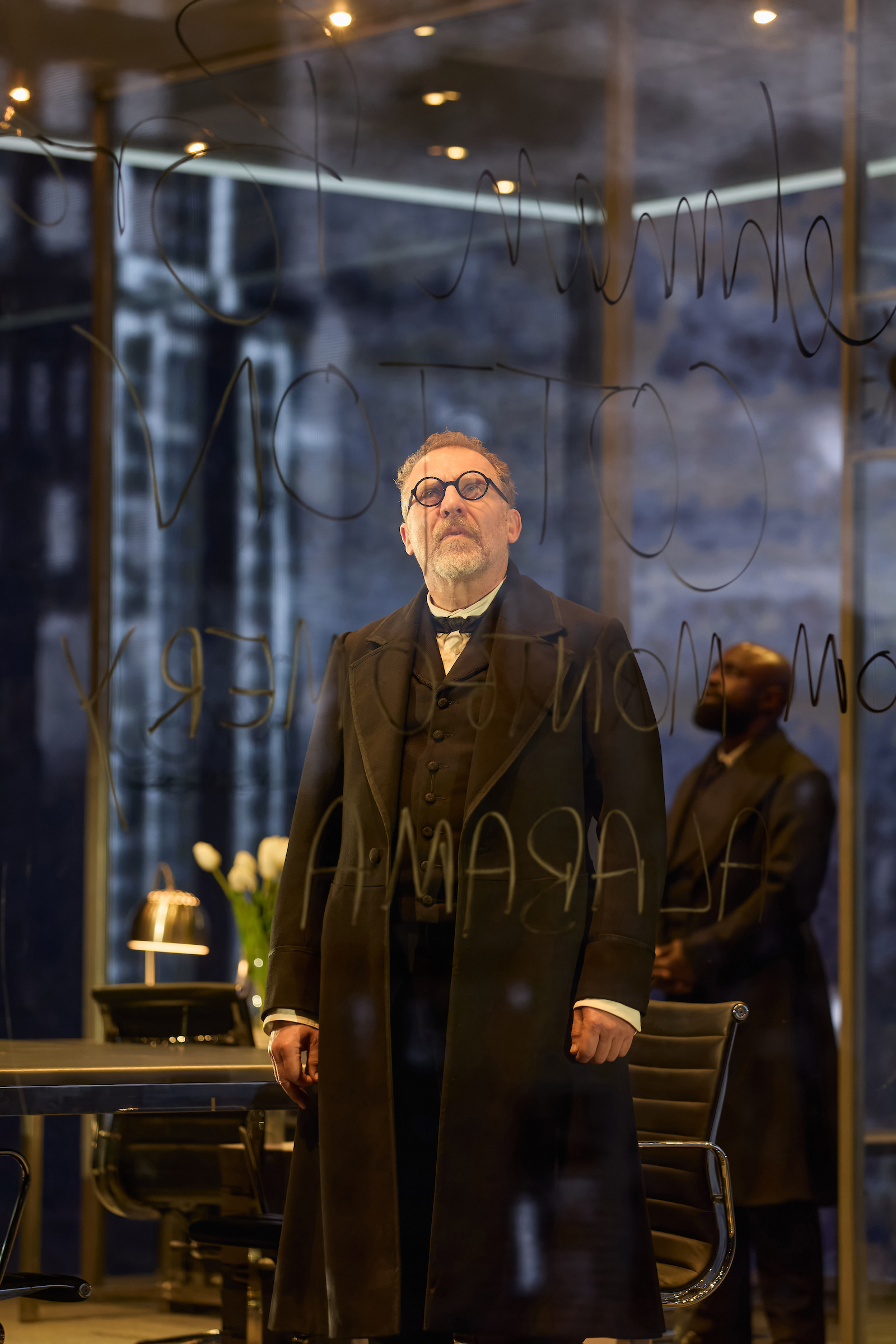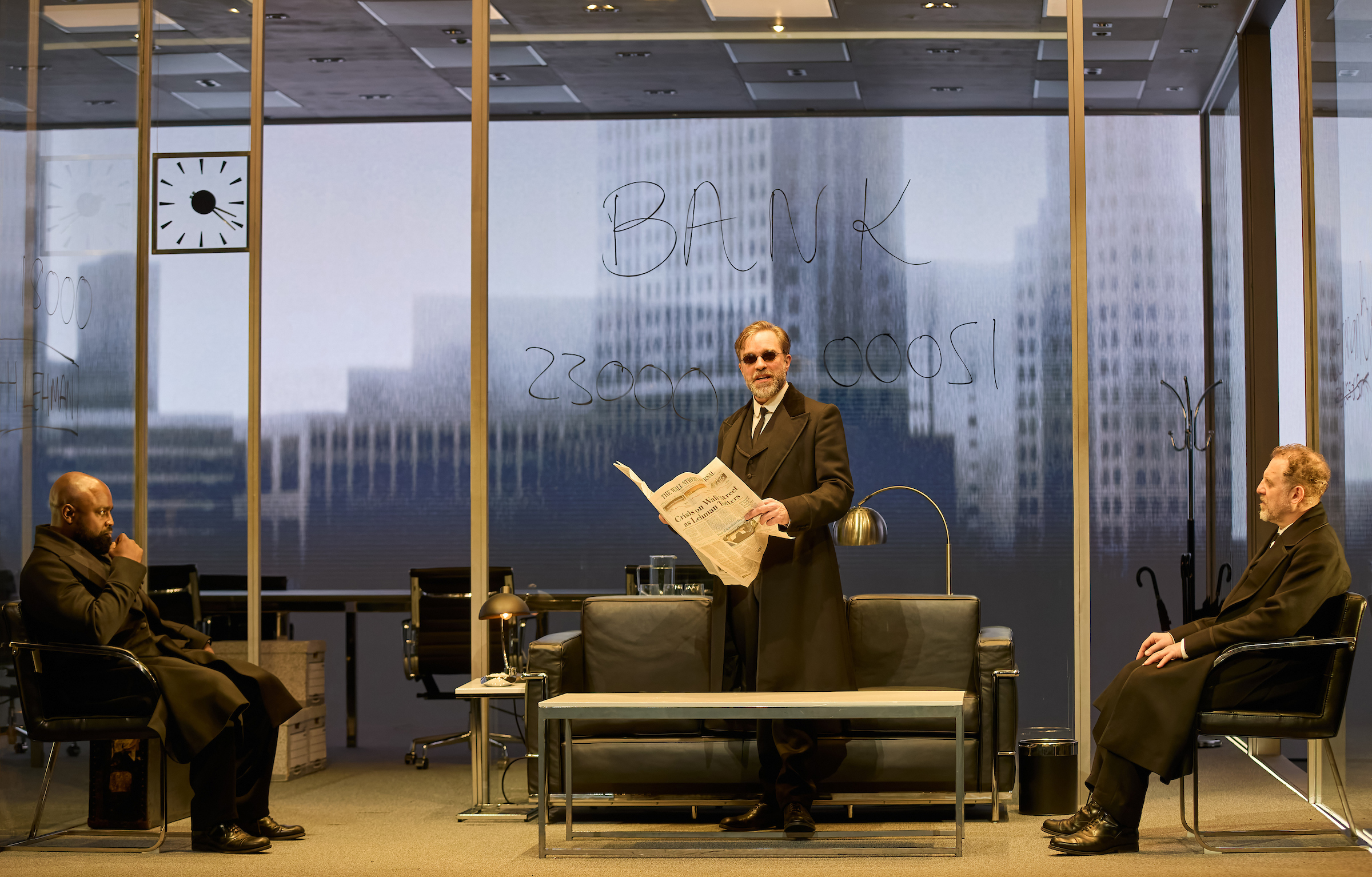National Theatre’s The Lehman Trilogy opened this January for its limited run on the West End. The critically acclaimed semi-biographical play follows the tale of three brothers who emigrate to America, from Bavaria, in the mid-1800s. The three-and-a-half-hour-long saga unfolds to reveal the story of their rise to economic aristocracy and their companies subsequent downfall in the 2008 crash.

The Gillian Lynn stage had been sparsely set with a rotating emulation of a Wall-Street office in the noughties, with a singular radio detailing the strapped financial situation of ‘Lehman Co.’ in the aftermath of the housing-crisis. We are then cast back in time to 1844 as Henry (Nigel Lindsey), Emmanuel (Michael Balogun), and Mayer Lehman (Hadley Fraser) step off the boat from Europe and begin their new lives in Montgomery, Alabama.
The Lehman Trilogy at the Gillian Lynne Theatre
Quick-witted dialogue does an astounding job of planting the seeds of legacy, even against the backdrop of impending collapse. This was complimented by the malleable set allowing the actors to build, demolish, and rebuild just the same as the Lehman lineage. Outstanding range of the performers can be seen through the smattering of multi-rolling, and admirable discipline detailed in directorial control (Sam Mendes, Skyfall; 1917), certainly deserving of their standing ovation on Wednesday.

The topic matter at hand certainly feels timely; whilst many may describe the Lehman story as a surface level ‘Rags to Riches’, a well-adjusted patron recognises that a fortune built off cotton-trading in the Deep South is coated in the blood of the exploited. The American Dream motif acts as a veil for more sinister themes: that it is not enough to be rich in the US, only to get richer. Whilst there are slices of comic relief in the narrative that are incredibly welcome, this is truly a story with no hero. The contemporary script itself, however, is a well packaged gift, taking care to tie every loose end and utilise repetition to reference the de-linearity of time, in a capitalist story that always ends the same. An educational and riveting watch for any theatre, economics, or even American history student. Book Your Tickets Today!
Reviewed & Written by Grace Sanders
















